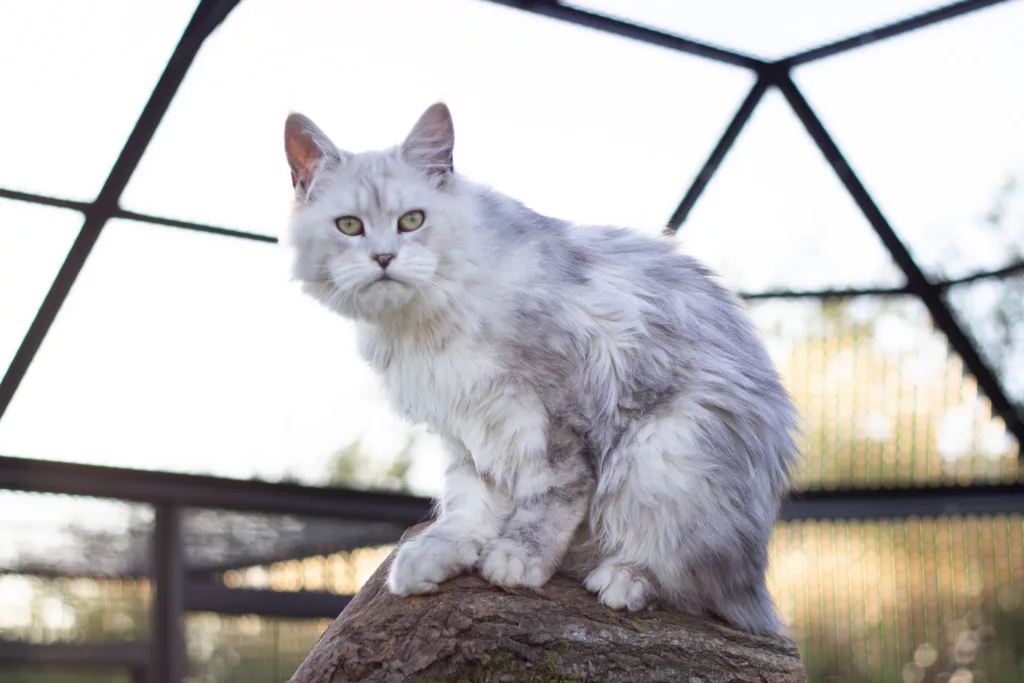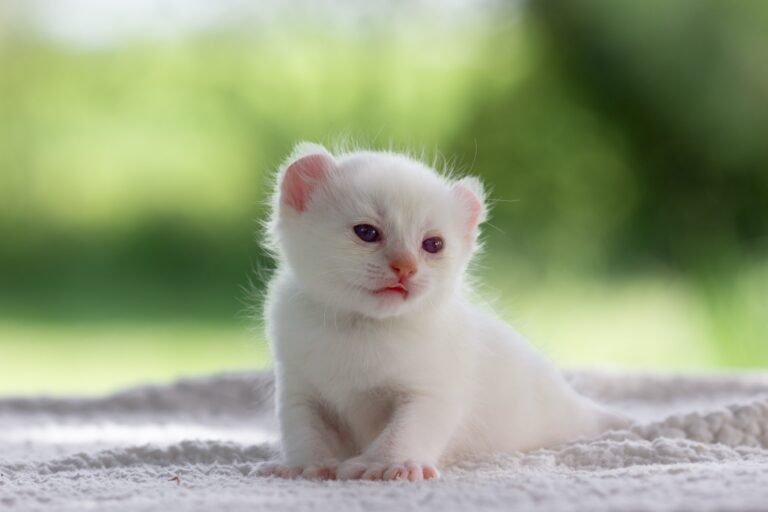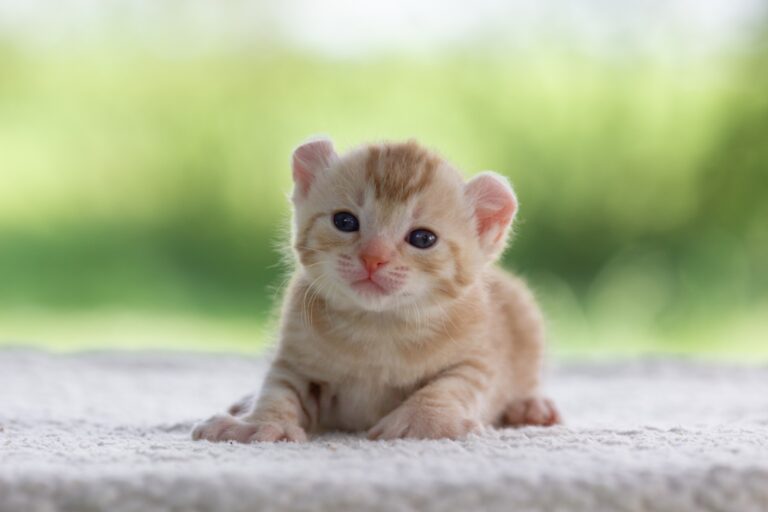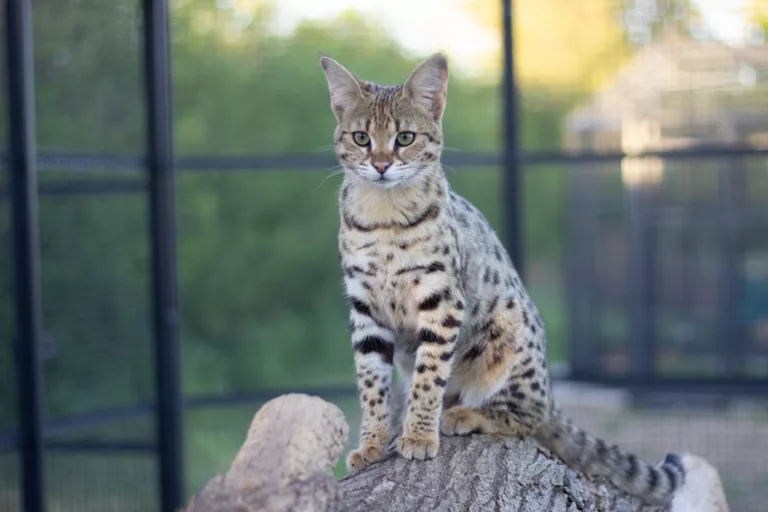Maine Coon cats, one of the oldest and most beloved natural breeds in North America, are known for their large size, tufted ears, and bushy tails. Their affectionate nature and playful personality make them a favorite among cat lovers. However, maintaining their health and happiness requires more than just regular petting sessions. As Maine Coon owners, it's essential to understand the common health issues they may face, as well as provide the appropriate care to ensure their longevity and quality of life.
Common Health Issues in Maine Coon Cats
Despite their robust appearance, Maine Coon cats, like all breeds, can be predisposed to certain health conditions, primarily due to their genetic makeup. Some health concerns are more prevalent in this breed than others, including hip dysplasia, hypertrophic cardiomyopathy (HCM), and polycystic kidney disease (PKD).
Hip dysplasia is a condition where the hip joint doesn't fit together properly, causing discomfort and, eventually, arthritis. Signs may include difficulty moving, reluctance to jump or climb, or even a change in gait. Although it can't be completely prevented, maintaining a healthy weight can significantly reduce the strain on your Maine Coon's hips.
Hypertrophic cardiomyopathy (HCM), a type of heart disease, is unfortunately common in Maine Coons. It involves thickening of the heart muscle, making it harder for the heart to pump blood efficiently. Often, there are no visible symptoms until the disease is quite advanced, making regular check-ups vital for early detection. While HCM can't be prevented, medications can manage symptoms and slow disease progression if caught early.
Polycystic Kidney Disease (PKD) is another inherited condition where cysts develop in the kidneys, leading to kidney dysfunction or failure over time. Early signs might include increased thirst and urination, loss of appetite, and weight loss. Regular blood and urine tests can help catch this condition early, allowing for dietary adjustments and medications to slow disease progression.
Learn more about the health of Maine Coons - https://www.lacompagniedesanimaux.com/conseil-veterinaire/le-maine-coon.html
Care and Maintenance for Maine Coon Cats
The health and longevity of Maine Coons doesn't solely rely on genetic factors or vet visits. General care and maintenance play a pivotal role as well. This begins with providing a balanced diet. Since Maine Coons are larger than the average cat, they need more nutrients. Choose high-quality cat food rich in protein and low in carbohydrates. Controlling portion sizes is crucial to prevent overeating and obesity, which can lead to other health problems.
Nutrition for Maine Coons
The right nutrition can significantly impact your Maine Coon's health, longevity, and quality of life. These large cats require a diet high in quality protein to support muscle mass, with a moderate amount of fat for energy.
Avoid cat foods that list 'meat by-products' or 'meat meal' as the primary source of protein, instead opting for those with identified meat sources (e.g., chicken, turkey). A small amount of carbohydrates is acceptable, but avoid foods with high carbohydrate content, as cats are obligate carnivores and have limited ability to process them.
Consider including omega fatty acids in their diet, which support skin and coat health. Some Maine Coon owners also supplement with glucosamine and chondroitin for joint health, especially considering the breed's risk of hip dysplasia.
Maine Coons need access to clean, fresh water at all times. Some may prefer running water, making a cat water fountain an appealing option.
Kitten Nutrition
Kittens have higher energy needs, so they require a diet that's rich in both protein and fat. They should be fed a specially-formulated kitten food until they are one year old.
Adult Nutrition
Adult cats require a balanced diet to maintain a healthy weight. Overfeeding can quickly lead to obesity in Maine Coons. Consult with your vet to determine the ideal portion sizes for your adult Maine Coon.
Senior Nutrition
As cats age, their nutritional needs change. Older cats may need a diet lower in calories but still rich in quality protein. They may also benefit from supplements for joint health and digestive enzymes to aid nutrient absorption. Always consult your vet before changing your senior cat's diet or starting any new supplement regimen.
Remember that each Maine Coon is unique, and what works for one may not work for another. Regular vet check-ups will help you monitor your cat's weight and overall health, allowing you to adjust their diet as necessary.
Hydration is equally important. Always ensure that your Maine Coon has access to clean, fresh water. Some Maine Coons prefer running water, so consider investing in a cat water fountain.
Physical activity is another crucial aspect of their care. Maine Coons are playful and energetic, so engage them in play with toys or laser pointers. Regular exercise can prevent obesity and promote muscle strength, reducing the risk of joint issues.
Grooming needs also warrant attention. Despite their long fur, Maine Coons have a coat that doesn't mat easily, but regular brushing can help prevent hairballs. Dental care is also crucial; routine teeth cleaning can prevent dental diseases and contribute to overall health. Additionally, maintaining a clean litter box is vital for hygiene and can help prevent urinary infections.
Exercise for Maine Coons
Exercise plays a crucial role in maintaining your Maine Coon's good health and preventing several health problems. Additionally, regular physical activity helps maintain a healthy weight, which is particularly important given the breed's size and predisposition to obesity. Indeed, obesity in cats can lead to many health issues, such as diabetes, joint problems like arthritis, and reduced lifespan. In conclusion, it is essential to encourage your Maine Coon to exercise to preserve its health and well-being in the long run.
Physical exercise also helps maintain muscle strength and agility, which can help prevent injury and physical ailments. Furthermore, it aids digestion and can contribute to preventing gastrointestinal problems like constipation or hairballs.
Maine Coons are known for their playful nature and high intelligence. As such, it's important to have toys that not only help them get the physical exercise they need but also stimulate their minds. Here are some specific toys and trees for Maine Coons:
Toys:
- Laser pointers: These are great for encouraging your Maine Coon to run and jump. Just remember not to shine it directly into your cat's eyes.
- Interactive puzzle toys: Toys like the Petstages Tower of Tracks or Trixie 5-in-1 Activity Center can stimulate your Maine Coon's intellect and satisfy their hunting instincts.
- Teaser toys: Toys like Da Bird or Cat Dancer mimic the movement of prey, providing both physical and mental stimulation.
- Fetch toys: Maine Coons are one of the few cat breeds that often enjoy fetch! Try small balls or mice toys for this game.
- Catnip toys: Many cats love catnip, and Maine Coons are no exception. Catnip-stuffed toys can provide hours of fun.
Trees and Climbing Structures:
Maine Coons are climbers, and a sturdy cat tree can provide an outlet for this instinct while also offering a good form of exercise. It's important to ensure the tree or climbing structure is sturdy enough to support a Maine Coon's weight and tall enough to satisfy their love of heights.
- FEANDREA Cat Tree: This cat tree features a multi-level design with ample scratching posts, condos, and perches, suitable for a Maine Coon's size and playful nature.
- Armarkat Cat Tree: Armarkat offers a variety of robust and durable cat trees. Many models include multiple levels, condos, and plenty of scratching surfaces.
- Go Pet Club Cat Tree: These cat trees have a solid reputation for being stable and durable. They offer large condos and spacious perches that can comfortably accommodate Maine Coons.
- Vesper Cat Furniture: If you're looking for something more modern and stylish, Vesper offers cat trees with a sleek design. They are equipped with memory foam cushions, scratching posts, and toys for a comprehensive play area.
More about the education of Maine Coons
Veterinary Care and Preventive Measures
Regular veterinary care is essential for Maine Coon health. Adhering to a vaccination schedule protects against diseases like rabies, feline leukemia, and distemper. Regular blood tests and screenings can help detect issues such as HCM and PKD early, significantly improving the prognosis.
Parasite prevention measures are also crucial. Fleas and ticks aren't just irritants - they can transmit diseases and lead to allergic reactions. Regularly applying a vet-approved flea and tick prevention product can keep these pests at bay. Deworming is another important preventive measure, as worms can cause a variety of health issues, from diarrhea to weight loss.
Spaying or neutering your Maine Coon can also benefit their health. In addition to preventing unwanted litters, it can prevent certain types of cancers and reduce the likelihood of marking behaviors.
Furthermore, microchipping is a simple procedure that can help ensure the safe return of your Maine Coon if they ever wander off.
Vaccination Schedule
A proper vaccination schedule is vital in protecting your Maine Coon from several common infectious diseases. Here is a typical vaccination schedule:
8 weeks: First vaccination for feline panleukopenia (FPV), feline herpesvirus (FHV-1), and feline calicivirus (FCV)
12 weeks: Second vaccination for FPV, FHV-1, FCV, and initial FeLV (Feline Leukemia Virus) vaccination
16 weeks: Third vaccination for FPV, FHV-1, FCV, second FeLV vaccination, and first rabies vaccination
Annually: Booster vaccinations for FPV, FHV-1, FCV, FeLV, and rabies
* Remember, this is a general guideline. Your vet will provide a schedule that fits your cat's specific needs.
Creating a Safe Environment
The environment in which a Maine Coon cat lives greatly affects their well-being. They thrive in an environment that caters to their natural instincts, offering scratching posts, climbing structures, and interactive toys for mental and physical stimulation.
Although Maine Coons have strong outdoor instincts, keeping them indoors can protect them from potential hazards such as traffic, predators, and disease. If you have a safe and secure outdoor space, supervised outdoor time can also be beneficial. Regardless, a stimulating indoor environment can fulfill their natural instincts, keep them active, and reduce the risk of obesity and its associated health risks.
Monitoring and Early Detection
Lastly, pet owners play a critical role in monitoring their Maine Coon's health. Changes in behavior, appetite, or litter box habits can be early signs of health problems. Regular physical examinations at home, such as feeling for any unusual lumps or changes in body condition, checking the mouth for signs of dental disease, and observing any changes in behavior, can help identify potential problems early.
Consistent veterinary check-ups are also essential for early disease detection. The vet will perform a thorough examination, listen to the heart and lungs, check the eyes and ears, and take blood and urine samples if necessary. This proactive approach is crucial, as many conditions are manageable if caught early, leading to a better outcome for your Maine Coon.
At The Wild Rendez Vous, we care about your pet's well-being. That's why we provide 3 months of complimentary health insurance. With this coverage, you can rest easy knowing that your furry friend won't face high-cost veterinary care during this important period. We're committed to ensuring your pet's health and happiness from the start.
I hope this information is helpful. If you have any other questions, feel free to ask!



